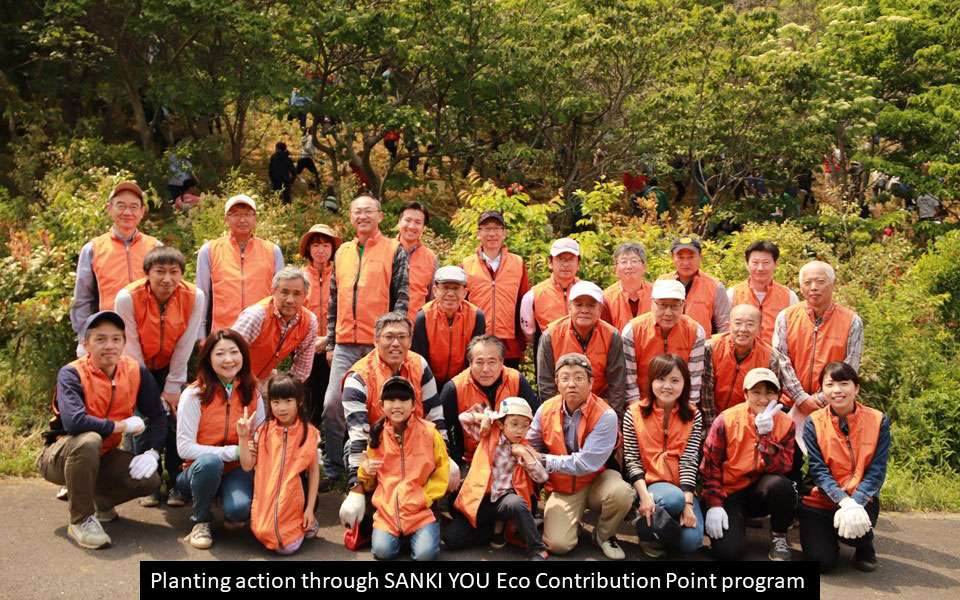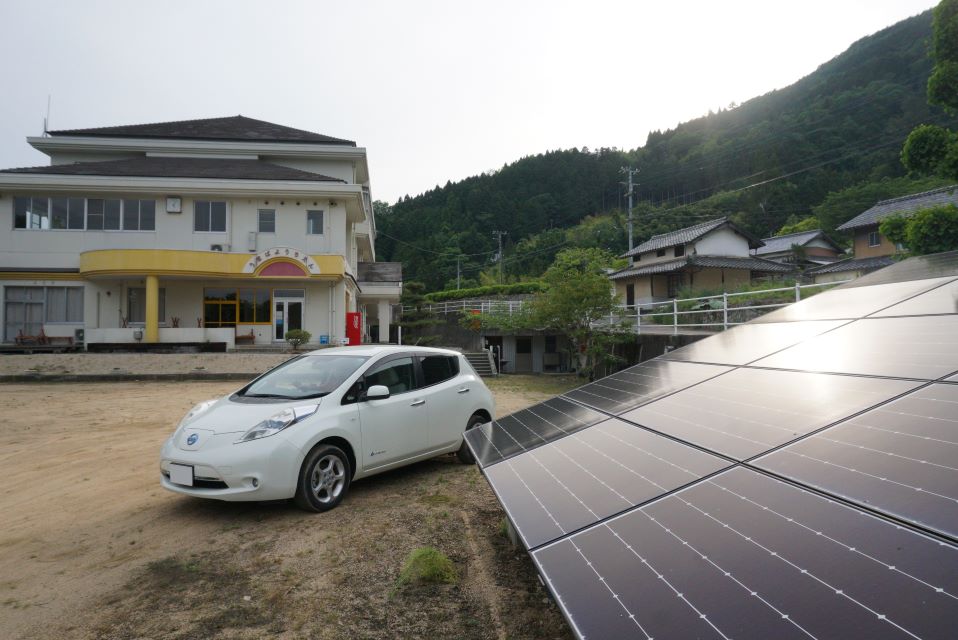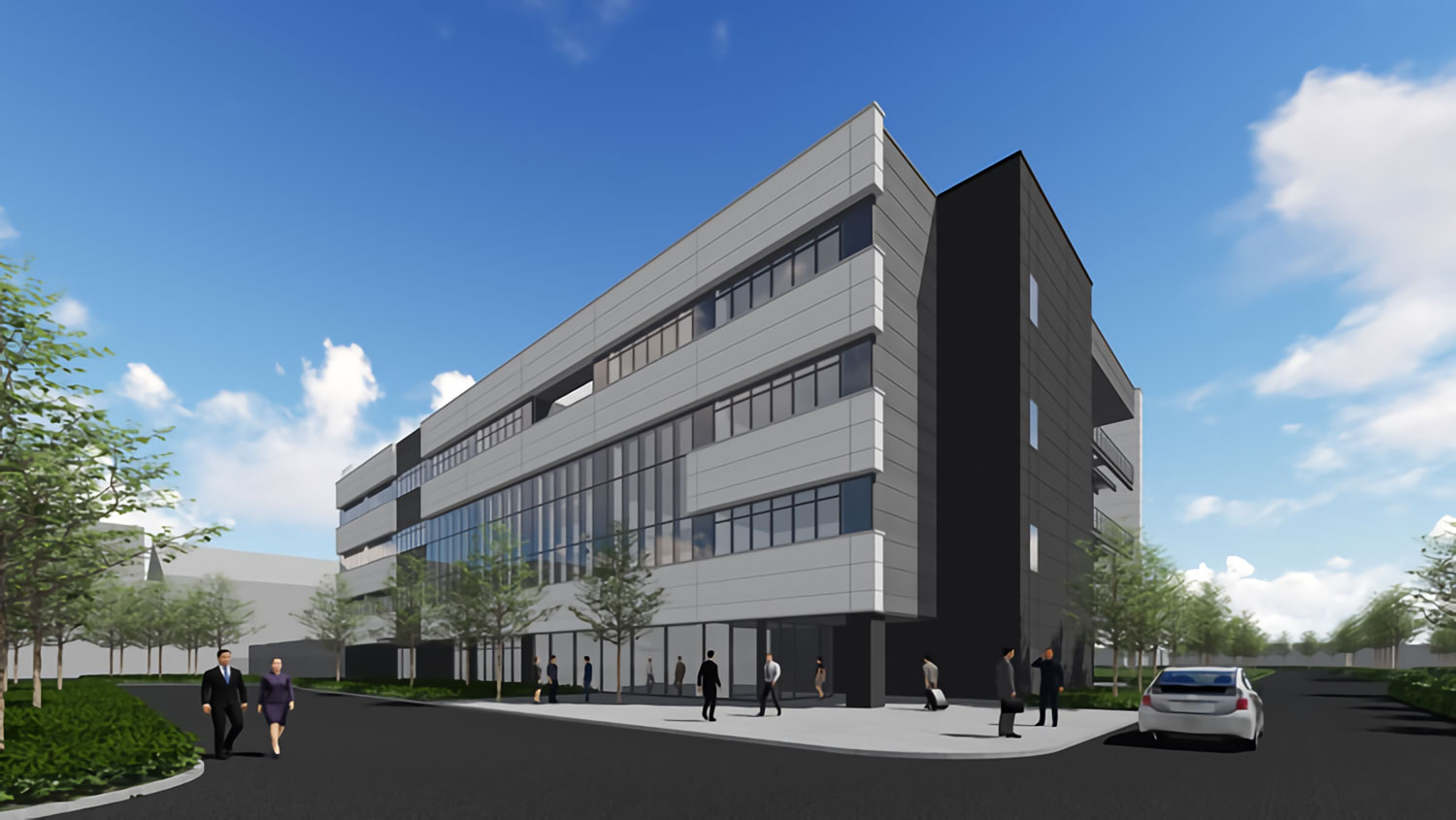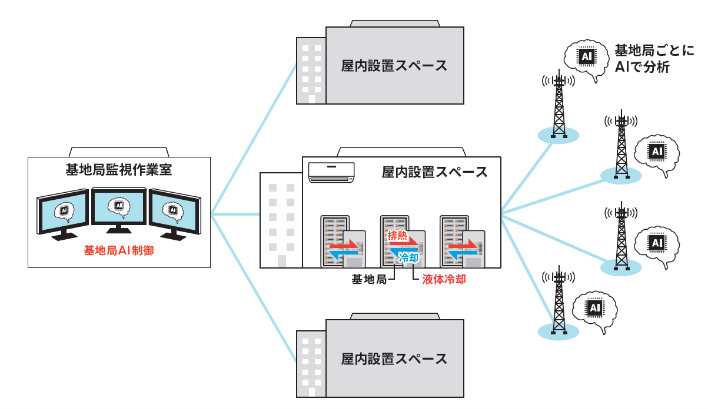ZEB, Energy Conservation, Energy Creation, and SANKI YOU Eco Contribution Points
SANKI ENGINEERING CO.,LTD.
Outline
As a comprehensive engineering company engaged mainly in the HVAC, hygiene, and electrical facilities that account for over half of building energy consumption, we promote the adoption of ZEB, energy conservation, and energy generation systems in order to contribute to the creation of a low-carbon, zero carbon society.
We provide engineering proposals and building construction aimed at achieving ZEB on average for all new building construction in 2030 and will continue to engage in activities linked to SANKI YOU Eco Contribution Points, which makes donations to environmental conservation organizations based on GHG reduction volume achieved through our engineering proposals.
Description
As a comprehensive engineering company engaged mainly in the HVAC, hygiene, and power facilities that account for over half of building energy consumption, we proactively promote the proliferation and adoption of ZEB, energy conservation, and energy generation systems. Our mainstay business is the installation of the heating, ventilation, and air conditioning (hereinafter, HVAC) systems used in office buildings and other large-scale non-residential buildings. The value of HVAC systems is in their ability to control building temperature, humidity, and air flow to increase workplace comfort for people working in office environments. This contributes to increased office productivity.
With office buildings and other large-scale buildings, the appropriate selection and installation (engineering) of HVAC system equipment and fixtures is incredibly important. Beyond just the performance of individual devices, how these devices are combined together (system) has a significant impact on a building’s overall energy conservation performance. This means that, as an engineering company, we play an important role in society.
In a typical office building, approximately half of energy consumed is used for HVAC systems. However, HVAC systems are invaluable and cannot be eliminated from buildings. At Sanki Engineering, our mission in society is the design, development, and installation of HVAC systems and technology that achieve both comfort and energy conservation. To achieve these, we are registered as a ZEB Planner under the system promoted by the Ministry of Economy, Trade, and Industry (METI).
The Ministry of Land, Infrastructure, Transport, and Tourism (MLIT) revised the Act on the Improvement of Energy Consumption Performance of Buildings (Building Energy Efficiency Act), making it a requirement that new large-scale buildings conform to energy consumption performance standards. Sanki Engineering is engaged in the social promotion as a ZEB Planner.
As an original initiative, Sanki Engineering has established the SANKI YOU Eco Contribution Points program. Through this program, which we have operated since 2010, points are allocated when a customer adopts and installs an energy conservation or energy generation system proposed by Sanki Engineering. Points are converted into monetary amounts that are donated to environmental conservation foundations based on the amount of reductions in greenhouse gases (GHG).
Donation amounts are calculated by converting GHG to CO2 at a rate of 1 ton to 100 yen. We will combine this program with various initiatives as we aim for the goal of achieving ZEB on average for new building construction in 2030. We will continue to promote the societal adoption of ZEB, energy conservation, and energy generation systems as well as promote our SANKI YOU Eco Contribution Points Program as we contribute to a low-carbon, zero carbon society.
Sanki Engineering current initiatives are introduced below.
● ZEB
The buildings we have coordinated as a ZEB Planner include an office building in Tokyo completed in FY2019. This is a ZEB Ready building that achieves 50% or better energy conservation. Through this plan, which includes comprehensive GHG reduction measures, including structural insulation, high-efficiency HVAC facilities, and LED lighting, we achieved construction that focuses on energy conservation and will enable the building to achieve ZEB status.
● Energy conservation
The ESCO Project for Mie University in FY2018 involved the upgrading of and control optimization for university hospital HVAC systems as well as a wide range of other major and minor energy conservation measures. Through this project, we were successful in reducing Mie University Kamihama Campus CO2 emissions by 7% overall for reductions of 1,700 tons annually.
Since 2008, when we upgraded facilities for Nagoya University Hospital, we have provided energy conservation systems on seven hospital and university ESCO projects.
● Energy generation
During the wood biomass gasification power plant construction project in FY2016 (NKC Nagai Green Power), we installed an updraft direct heating gasification power generation system in a small-scale (2MW) facility, which are typically viewed as difficult to operate and inefficient. We enabled highly efficient, stable operation that resulted in annual CO2 emissions reductions of over 7,700 tons.
●SANKI YOU Eco Point Program
In systems installed in FY2018, we achieved CO2 emissions reductions of 20,699t and we have continued to build on our record of GHG reductions since launching this program in 2010. Through the donations to environmental conservation foundations generated based on GHG emissions reductions, we have contributed to the planting of nearly 17,000 trees, equivalent to an area the size of the Tokyo Dome.
Other Innovation Challenges
Biomass gasification-based power generation using local wood resources
SANKI ENGINEERING CO.,LTD.
Similar Innovation Challenges
Accelarating the penetration of renewable energy resources with “Open Energy System”
Sony Group Corporation
Achieving net-zero carbon emissions from plant factories using full artificial lighting
Taikisha Ltd.
Advanced technology for buildings providing energy-saving and comfortable indoor environment (under Net Zero Energy condition)
Mitsubishi Electric Corporation
AI control reduces base station power consumption by up to 50%
KDDI CORPORATION





